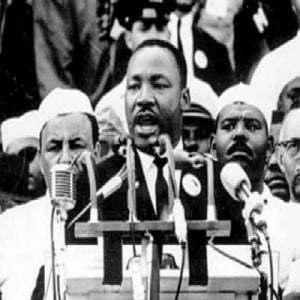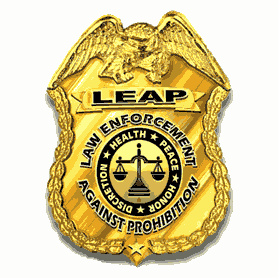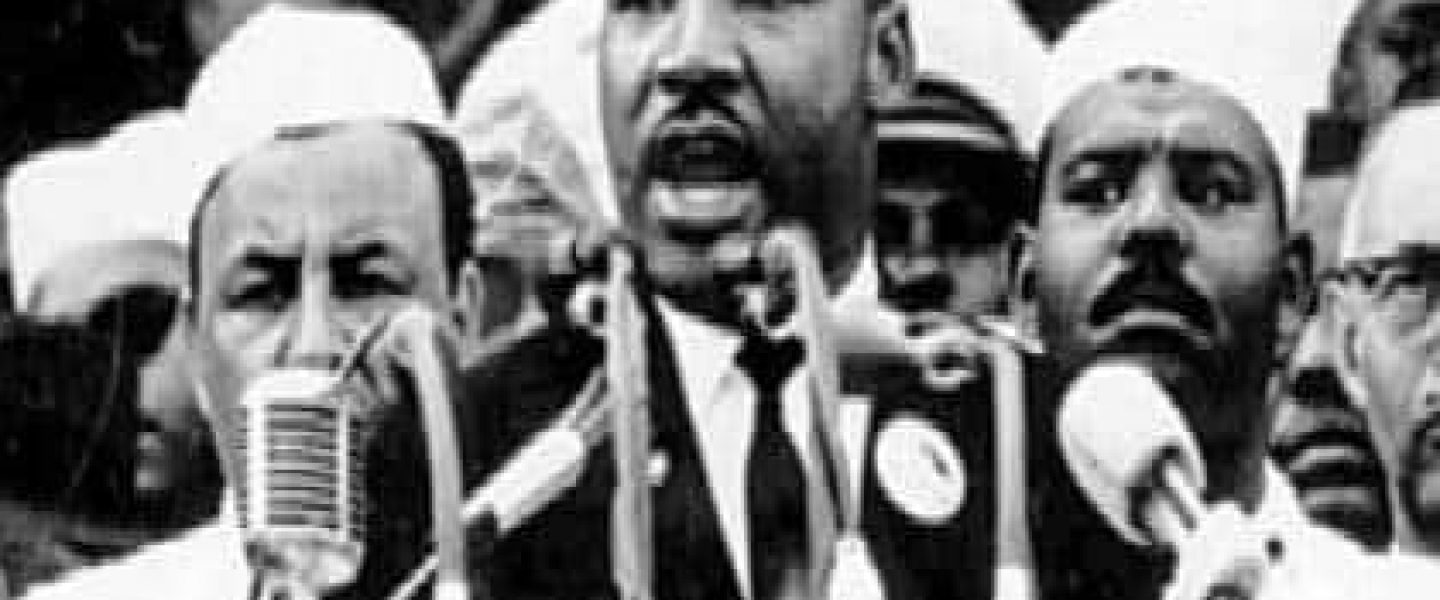 Martin Luther King Jr. And Marijuana Prohibition
Martin Luther King Jr. And Marijuana Prohibition
If Martin Luther King Jr. was alive today, what would he say about marijuana prohibition? What would Martin Luther King Jr. say about the affect of marijuana prohibition on civil rights? Considering the way law enforcement and the federal government use marijuana laws to harass the population, I would have to assume that Martin Luther King Jr. would be adamantly opposed to marijuana prohibition. I would even go as far as stating that Martin Luther King Jr. would help lead the fight for marijuana policy reform in America.
The war on marijuana has been a war on civil rights. The very start of marijuana prohibition was rooted in racism and the government’s desire to suppress the civil rights of marijuana consumers (mainly minorities). As it stands today, the war on marijuana has been one of the most racist policies in American history. If anyone needs to know how marijuana prohibition affects their civil rights, just look at the widget on our side bar that lists the amount of marijuana arrests that are occurring in America everyday.
As the ACLU has reported, “Despite the fact that whites engage in drug offenses at a higher rate than African-Americans, African-Americans are incarcerated for drug offenses at a rate that is 10 times greater than that of whites.” Indeed, blacks–who make up 13% of the population–account for 40% of federal prisoners and 45% of state prisoners convicted of drug offenses. Below are some essays that I came across on the web that highlight Martin Luther King Jr. and marijuana prohibition:
Cannabis Civil Rights
“You express a great deal of anxiety over our willingness to break laws. This is certainly a legitimate concern. Since we so diligently urge people to obey the Supreme Court’s decision of 1954 outlawing segregation in the public schools, at first glance it may seem rather paradoxical for us consciously to break laws. One may well ask: “How can you advocate breaking some laws and obeying others?” The answer lies in the fact that there are two types of laws: just and unjust. I would be the first to advocate obeying just laws. One has not only a legal but a moral responsibility to obey just laws. Conversely, one has a moral responsibility to disobey unjust laws. I would agree with St. Augustine that “an unjust law is no law at all.”
Now, what is the difference between the two? How does one determine whether a law is just or unjust? A just law is a man made code that squares with the moral law or the law of God. An unjust law is a code that is out of harmony with the moral law. To put it in the terms of St. Thomas Aquinas: An unjust law is a human law that is not rooted in eternal law and natural law. Any law that uplifts human personality is just. Any law that degrades human personality is unjust.”
Dr. Martin Luther King Jr.
Letter from a Birmingham Jail
April 16, 1963
Today our nation honors what would’ve been this week the eightieth birthday of the Reverend Martin Luther King Jr., on the eve of the inauguration of Barack Hussein Obama as the 44th president of these United States. I was sixty-four days old when an assassin’s bullet cut down Dr. King in the prime of his life. Today I am six-hundred forty days older than Dr. King when he was killed. Tomorrow I will see something few people my age and older thought we’d ever see, yet something Dr. King had dreamed from the start.
There remains a grave injustice to be battled, the most unjust of laws to be disobeyed, a law that by its definition is not rooted in eternal law and natural law: the man made code that declares nature itself to be illegal, the prohibition on cannabis. Yet when I mention marijuana law reform in the context of the great civil rights struggles in America, so many are quick to dismiss me with snickers of derision. ”You just want pot legal so you can get high!” is a common refrain.
Marijuana law reform is a civil rights struggle. I will not attempt to equate this struggle to those of minorities, women, or gays and lesbians; however, there are some parallels among our fight and theirs and, indeed, some threads of drug law injustice are woven directly into the struggles of these groups. The prohibition of drugs was one of the tools of oppression — the “Negroes” for their cocaine, the “Chinamen” for their opium, and the Mexicans for their marihuana. It remains so today — while people use drugs at about the same rate regardless of race, African-Americans and Hispanics are disproportionately arrested, convicted, and serve longer sentences for drug use than white people.
Aside from the racist nature of the origins and applications, cannabis prohibition itself is an unjust law. First consider that it isn’t merely against the law to possess, cultivate, traffic, buy, and consume marijuana — it is against the law to be marijuana. Federal and state law enforcement spend millions of dollars and thousands of hours flying helicopters attempting to spot cannabis growing out in the wild. Ninety-eight percent of what is seized is known as “feral hemp”, which is wild ditchweed with unsmokably-low levels of THC. Officials rip up and destroy every plant they see whether it is owned or tended by any human, whether or not it could possibly intoxicate any human. Logically, then, the ultimate goal of marijuana prohibition is not to simply stop humans from using it for intoxication, but to eradicate the species cannabis sativa L. from the earth!
Think of that: our official policy is the extinction of a species of life. Certainly that’s not entirely new. We’re dedicated to the extinction of all manner of microscopic life, after all, but that is a justifiable policy for self-preservation — we kill bugs that kill us. I cannot think of another plant or animal we treat like cannabis. Deadly plants like nightshade and belladonna are legal, annoying plants like poison ivy and poison oak are legal, even intoxicating plants like coca and poppy are legal when cultivated for prescription medications. But the cannabis plant, the plant that cannot kill you is completely illegal*. The plant that can provide the food, clothing, shelter, and medicine humans need to survive is illegal. Nature itself is illegal. How much more contrary to eternal law and natural law could this unjust prohibition law be?
The fight against cannabis prohibition, against this unjust law, is a civil rights fight. This declaration will offend some people who will point to four centuries of slavery and Jim Crow, to lynchings and cross burnings, and to beatings and firehoses and condemn my declaration as making light of the plight of those who were truly oppressed. I do not make light of those struggles, but I also recognize that civil rights are not a zero sum game and the degree and manner in which one is being oppressed are not what make the fight against oppression a just one. Dr. King dreamed of a day when children would be judged by not by the color of their skin but the content of their character; I dream of a day when workers are judged not by the metabolites in their urine but the quality of their work.
Later in King’s Letter from a Birmingham Jail, he writes:
Let us consider a more concrete example of just and unjust laws. An unjust law is a code that a numerical or power majority group compels a minority group to obey but does not make binding on itself. This is difference made legal. By the same token, a just law is a code that a majority compels a minority to follow and that it is willing to follow itself. This is sameness made legal. …
I hope you are able to see the distinction I am trying to point out. In no sense do I advocate evading or defying the law, as would the rabid segregationist. That would lead to anarchy. One who breaks an unjust law must do so openly, lovingly, and with a willingness to accept the penalty. I submit that an individual who breaks a law that conscience tells him is unjust, and who willingly accepts the penalty of imprisonment in order to arouse the conscience of the community over its injustice, is in reality expressing the highest respect for law. …
The unjust law of marijuana prohibition is difference made legal. The majority compels our minority to forgo our intoxicant, but does not bind itself to forgo their intoxicant. The majority compels our minority forgo our medicine, but does not bind itself to forgo their medicine. The majority compels our minority to forgo their religious sacrament, but does not bind itself to forgo their religious sacrament. The majority compels our minority to forgo our source of food, fuel, and fiber, but does not bind itself to forgo their sources.
The majority may argue that they do not prohibit intoxication, medication, religious sacrament, or food, fuel, and fiber cultivation, so long as it doesn’t involve marijuana. This to me sounds like the argument against same-sex marriage rights, that gays and lesbians are just as free to marry someone of the opposite sex as everybody else. If we are given a right, but then proscribed from exercising that right in the manner that benefits us without a valid reason from the majority, it is not really a right. When intoxication, medication, and sacrament are legal rights, but we are proscribed from using a demonstrably safer intoxicant, medicine, and sacrament, that is difference made legal.
No, we do not face the firehoses and the dogs and the lynchings, nor do we suffer in as great of numbers as did the African Americans Dr. King so graciously led in the years before my birth. Our oppression is more subtle and codified into laws that restrict our housing, employment, and educational opportunities. We do not tremble in fear of the midnight ride of white-robed vigilante Klansmen; our terror comes in the form of midnight no-knock raids of body-armored SWAT teams.
Like the civil rights struggles of the past, we work to change laws that oppress people, laws that enjoy support from the majority and are rationalized by tradition, religion, and junk science. Unlike the civil rights struggles of the past, our constituency is an invisible group defined by lifestyle, not genetics. That choice to use cannabis should not disqualify our fight to be treated as equals under the law. After all, the choice to worship the God of your understanding is not genetic, it is a lifestyle choice as well, and our law recognizes that one cannot be discriminated against for that choice. In fact, it is a bit ironic that one’s choice of God, a belief that cannot be proven by science to beneficial, is a protected right, yet one’s choice of cannabis, a plant that can be proven by science to be beneficial, is a federal crime.
The freedom to worship, of course, is an explicit right recognized by our First Amendment, but its foundation is in the inalienable rights given to us by our Creator, among them being Life, Liberty, and The Pursuit of Happiness. If that last one — the Pursuit of Happiness — doesn’t give me the right to smoke a joint so long as I don’t affect anyone else’s Life and Liberty, then the Constitution isn’t worth the hemp paper on which it was drafted.
Also from King’s Letter from a Birmingham Jail, he writes:
We should never forget that everything Adolf Hitler did in Germany was “legal” and everything the Hungarian freedom fighters did in Hungary was “illegal.” It was “illegal” to aid and comfort a Jew in Hitler’s Germany. Even so, I am sure that, had I lived in Germany at the time, I would have aided and comforted my Jewish brothers. If today I lived in a Communist country where certain principles dear to the Christian faith are suppressed, I would openly advocate disobeying that country’s antireligious laws.
Today’s freedom fighters are the people like Eddy Lepp and Charles Lynch, providing aid and comfort to the sick and dying by growing and supplying them with medicine, only to face the rest of their natural lives behind bars because what they did was “illegal”.
Today’s “whites-only” establishments are the “drug-free” workplaces keep cannabis users confined to low-paying part-time or temp service jobs, while the rest of the workers are allowed all the alcohol, nicotine, and prescription medications they desire.
Today’s lynchings are the Rachel Hoffmans and Jonathan Magbies who are murdered by police negligence, solely over their use of cannabis. Today’s institutionalized discrimination is the over 20 million in my lifetime whose lives are marked with the scarlet letter of a drug conviction, affecting their child custody, government assistance, college financial aid, employment opportunities, professional licenses, voting rights, and liberty.
The prohibition of cannabis ultimately degrades human personality and is against moral law. It is an unjust law that cannot stand, and we have a moral responsibility to disobey it. In doing so, we express the highest respect for the law. On this day when we recognize the greatness of Dr. Martin Luther King’s Dream, and on tomorrow, when we see part of that dream fulfilled, remember that we don’t fight to “make pot legal so you can get high”; we fight because the Pursuit of Happiness is our right and caging us for our method of pursuit is unjust.
Smoking pot is our civil right!
Let us all hope that the dark clouds of racial prejudice will soon pass away and the deep fog of misunderstanding will be lifted from our fear drenched communities, and in some not too distant tomorrow the radiant stars of love and brotherhood will shine over our great nation with all their scintillating beauty.
Yours for the cause of Peace and Brotherhood,
Martin Luther King, Jr.
* I recognize that marijuana is legally grown at ElSohly’s lab at the University of Mississippi. But consider that marijuana’s two purposes — to supply five people grandfathered in to the IND program and to provide marijuana for studies to prove how awful marijuana is to justify its prohibition. In this metaphor it would be akin to saving a few vials of polio virus so you could use them to make vaccines.
 From Neill Franklin of LEAP:
From Neill Franklin of LEAP:
On a day when we honor a man whom historians may well come to describe as one of America’s Founding Fathers, I am reminded of how inspired I have been by the words and deeds of Dr. Martin Luther King.
When I think of countless LEAP supporters from all walks of life devoting themselves to defending the vulnerable, hidden and scorned victims of our drug policies, I feel his words, “Injustice anywhere is a threat to justice everywhere,” taking material form. Real policy reform protects the weakest among us.
When I reflect on the inequitable enforcement of our drug policies, I am reminded of his statement that, “The arc of the moral universe is long, but it bends towards justice.” Selective, discriminatory enforcement is a cornerstone of a policy that has always been more a war on certain people than a genuine war on addiction.
When I think of LEAP’s founding fathers, the five cops who had had enough of this unjust war and created an international organization of law enforcement professionals who confront the status quo, I am bolstered by his statement that, “We who engage in nonviolent direct action are not the creators of tension. We merely bring to the surface the hidden tension that is already alive.”
But mostly, especially when tempted to walk away and take the easier path, my commitment is reborn in his words, “Our lives begin to end the day we become silent about things that matter.”
And so, on the day of his birth, I speak for LEAP when I express our gratitude for his work and a re-commitment to his ideals.
Sincerely,
Major Neill Franklin–Law Enforcement Against Prohibition


























